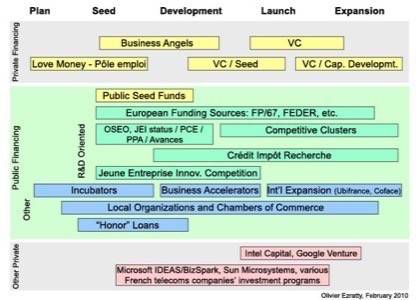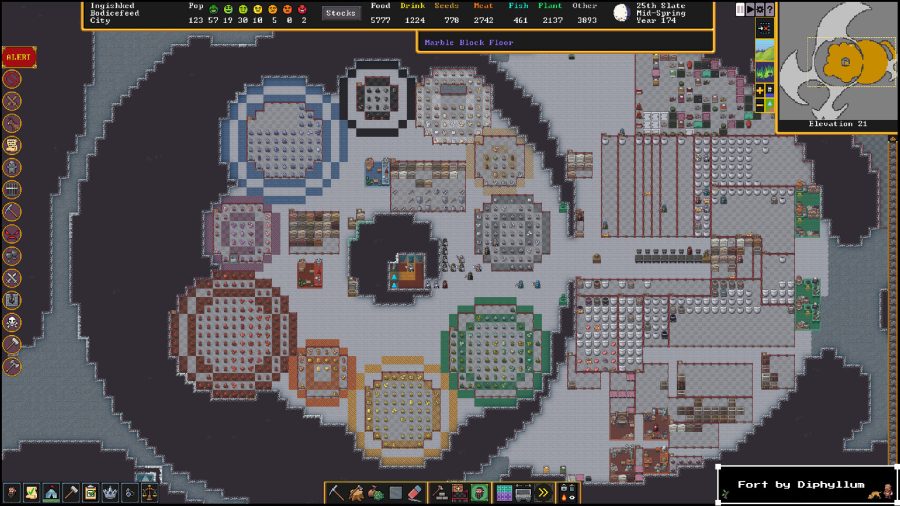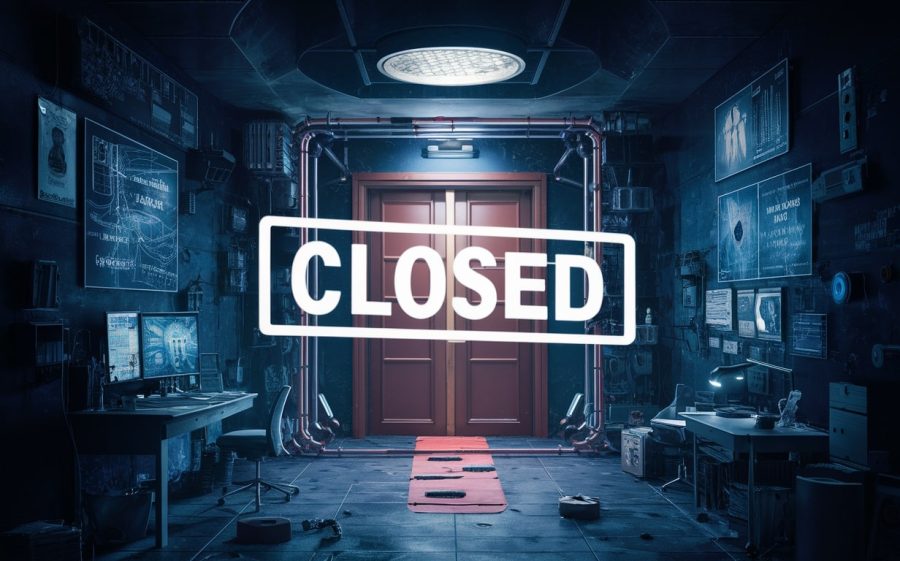If you’re capable of seeing past the old stones of Paris and the picturesque rural villages, you’ll realize that France is every bit as technologically advanced as any other Western country – more so in some areas. Not only does the country have a higher percentage of homes with high-speed Internet than the U.S. (plus it’s faster and costs half as much), it ranks first in the world for number of blogs per Internet user, and has a formidable market of Internet consumers who spent €5.5 billion online in the first quarter of this year.

When I came to Paris in 2006, I had a well-developed idea for a startup and nothing else. It’s now been about three years since I joined the fray as an entrepreneur and tech blogger. In that time, I’ve discovered that the startup scene is infused with passion, energy and a strong spirit of collaboration.
Pamela Poole is a blogger, translator and tech writer, and founder of Francophilia.com, a social startup for Francophiles. Originally from California, she now lives in Paris, where her involvement in the vibrant startup scene keeps her from spending too much time in the bakeries.
There’s a thriving geek culture in Paris, and no lack of software development expertise, thanks to superior universities that produce superior engineers. The startup scene is relatively young, however, which is partly due to some pretty fundamental cultural barriers. But these barriers are showing some wear and tear.
Want to start up in France?
While foreign entrepreneurs wait for the Startup Visa to become a reality so they can go launch their startups in the US, France has quietly had a similar program in place for some time. The French government has translated the JEI program into English as the Young Entrepreneurs Initiative, an annual competition run by the French Embassy to the US. The name is a bit misleading – you don’t actually have to be young, but your project does. YEI is essentially the same as the JEI program, and winners of the competition can come to France and enjoy the same benefits as startups with JEI status. So what are you waiting for?
There are numerous events and organizations in Paris that exist solely to foster entrepreneurship and tech innovation, many of which get partial financial support from local, regional and national government. France is not a socialist country, but it’s a socialized country, and the French get a lot in return for the taxes they pay.
The Big Players
Silicon Sentier is perhaps the best-known player in the Paris startup scene. It’s essentially an ecosystem whose mission is the care and feeding of innovation. Among other activities and programs, Silicon Sentier runs La Cantine, a coworking center, hip geek hangout and bustling hub for Paris tech events and activities: barcamps, workshops, competitions, launch parties, press conferences – you name it.
Cap Digital and System@tic are among a number of tech clusters in Paris. The boards of these organizations include large companies, local and regional government representatives, universities/public research labs and SMEs. Through them, entrepreneurs can hook up with R&D resources in universities and companies, and get access to a robust support network that provides opportunities for visibility, growth and financing.
Fing, another major player, is “an idea accelerator, a think tank and a resource for innovators.” Fing may be a think tank, but it fosters startup success in very concrete ways. Startups can submit their projects to Fing, which provides support to over 200 projects a year through events, programs, and access to a large network of resources.
LeWeb, Europe’s largest (and the world’s second largest) Internet conference is held in Paris every December. It was created and is run by French entrepreneur Loïc Lemeur (Seesmic), and it includes a competition for European startups. Yes, it happens in Paris, but it’s held in English because it’s an international conference. LeWeb is a world-class tech conference, and the speakers on the program are always the crème de la crème of the startup world.
Incubators, Accelerators, Competitions
We have those too. Some, like Seedcamp, Startup Weekend, barcamps and the OpenCoffee Club are imports from other countries. Others are homegrown, like SeedNetworking, the brainchild of some alumni of HEC (one of France’s best business schools) and Ecole des Mines (one of the excellent engineering schools), who tweaked the speed-networking concept to get entrepreneurs who need developers and developers who need projects in the same room for some fast and furious face time.
The major engineering and business universities have incubators for students and alumni, though some of them are less Internet oriented than others, and there are a few unaffiliated incubators as well, like Paris Pionnières, which receives both public and private funding and supports women-owned startups, and the incubators of Paris Développement, which is funded by the city of Paris and the Paris Chamber of Commerce and Industry. Big names like Microsoft BizSpark and Sun Startup Essentials have a presence here, of course, and The Funded recently launched their Founder Institute in Paris as well.
One thing we are missing here in Paris is longer-term intensive accelerators of the Y Combinator variety, but they exist in the U.K., so it shouldn’t be long till they hop across the Channel.
The Funding
The funding landscape is complex from a foreigner’s point of view because the government is very often involved somehow. There are public entities that seem to be frequently renamed or merged, as well as semi-private and private organizations, and their activities are all very intertwined with each other. And it’s acronym hell. But the bottom line is that there is money for startups, and a lot of it comes from those taxpayer Euros I mentioned earlier. In fact, about three fourths of startup money comes from public funds.
One obstacle startups have traditionally faced here is that public and private funding is largely skewed towards projects that involve an R&D/new technology component. French investors are more risk averse than their American counterparts, and the possibility of a patent is reassuring to them.
And, until recently, business angels have been relatively few and far between. This is in part because the government historically filled the seed-funding void, and that is where people tended to turn. But angels are getting more structured, more active, and there more of them. Plus there’s been another important new development: Several highly successful French Internet entrepreneurs-turned-investors, who are considerably less skittish than your traditional French investor, are taking matters into their own hands (Meet France’s New and Awesome Super Angels).
The chart below shows the general funding options available to French startups.

Startups can access public funding in a number of ways. A rite of passage for many is to go through OSEO, which will analyze and validate a project. OSEO validation in turn makes early-stage startups eligible for a variety of support services and funding options. OSEO can be involved during very early stage activities, such as business plan creation and feasibility studies. It also provides support and guidance well beyond that phase.
A startup can be designated a Jeune Entreprise Innovante (Innovative Young Enterprise). The JEI program was created in 2004 and is managed by the Ministry of Research. Having JEI status is pretty much a golden ticket to financing, and JEI startups also get tax breaks and other benefits. To qualify, your project has to have an R&D element. There is also the Concours national d’aide à la création d’entreprises de technologies innovantes (National competition to help create innovative technology companies). Winners of this contest can be awarded up to €450,000 for R&D.
Private individuals who want a tax break can put money into special investment funds (Fonds commun de placement dans l’innovation) that are meant to be invested in innovative companies. These are managed by various wealth management entities (Conseils en gestion de patrimoine indépendents, or CGPI). The condition for receiving the tax break on these investments is that 60% of the money must go to early-stage, innovative companies, and it must be invested within two years of receipt by the CGPI. OSEO can designate a startup as an Entreprise innovante au titre des FCPI, which makes it eligible for this kind of investment. This designation is similar to JEI but has a broader view of “innovative” and is less strict about the R&D element.
Pôle emploi is the government agency that provides unemployment compensation, but it also helps those recipients who are creating a small business or startup by providing extended compensation and breaks on the social charges (retirement, medical, disability, etc.) that businesses normally pay to the government.
Réseau Entreprendre Paris, a network of business owners, and France Initiative, a network of local organizations, are examples of the many semi-private organizations that support startups. They themselves receive both public and private funding, which they use in turn to provide financial support to startups through incubators and other established channels.
I’ve focused on some options for early-stage startups here, and haven’t discussed VC funding or the many organizations here that help French startups expand internationally. For a comprehensive guide (in French) to starting up in France, I highly recommend Accompagnement des startups high-tech en France [PDF], and for an overview of the funding cycle, Exemple de cycle de financement de startup en France [PDF]; both are by Olivier Ezratty.
Photo by Konstantinos Dafalias
The Startups
RWW’s Never Mind the Valley series:
You may think you’ve never heard of any French startups, but it’s possible that you’re using apps you don’t even realize are French. If they’ve picked a name English speakers can pronounce and translated their sites into English, they blend right in. Take Netvibes, the pioneer in the personalized dashboard space, which has been written about a number of times here on ReadWriteWeb. They’re going strong, and constantly adapting their platform to users’ changing needs for information and social media aggregation. And there’s DailyMotion, which is eating into YouTube’s market share and had a 70% jump in US traffic in 2009.
There are plenty of successful startups in France that cleverly capitalized on the fact that startups in other countries didn’t localize for the French market. The model of Sarenza is similar to that of Zappos, and it dominates the European market for footwear online. There are also original models that are either being copied or stealthily moving into English-speaking markets, like Vente-Privée and PriceMinister. PriceMinister, a site for C2C/B2C sales of new and used goods (at a fixed price) is the top e-commerce platform in France (recently surpassing eBay.fr and Amazon.fr). It has infiltrated the U.K., and I wouldn’t be surprised if the U.S. were on its radar, where it’ll surely give eBay.com some healthy – and much needed – competition. Vente-Privée is a retail site selling designer products at invitation-only online sales. One of the top e-commerce sites in France, it has expanded into other European countries and its model has given rise to some me-toos in other countries.
The French have their share of exemplary startups in the enterprise space as well, including BlueKiwi, an enterprise social platform, and Exalead, which offers powerful and easily integrated search tools to help businesses and institutions get the most out of their information assets. Exalead’s true entrepreneurial colors still show, thanks to its internal project incubator, Exalabs. (Exalead was just acquired by the technology giant, Dassault Systems.)
These are some French startups that have made it to the big time. But what about the little guys? All those struggling, bootstrapping, Ramen-eating founders? As a matter of fact, Paris is crawling with them. Some are clearly aiming no further than the French market, but a number of them are out of the gate in at least French and English with a view to conquering the Web. Just like anywhere else, French startups run the gamut from basic Web apps that focus on a specific niche need, to ambitious and powerful platforms that are likely to give the current leaders a run for their money. Here’s a list of just a few of our jeunes pousses (sprouts).
(E= in English)
English Attack: Edutainment site that teaches English using Internet content that real people actually use: music, video, gaming, and more. (E)
GameCreds: Impressive social universe for gamers. (E)
Kontest: Ready-made solution for creating and managing a variety of interactive contests to provide user communities memorable experiences on Facebook and the iPhone. (E soon!)
Meetings: Nice collaborative app that manages all activities related to meetings: communications, attachments, agendas, action items, scheduling, etc.
MonArbre-MaTribu: Crowd-sourced reforestation project, very nicely done. One Euro plants a tree. (France only, for now.)
Pearltrees: A bookmarking site with a new approach to organization of content that resembles mind mapping. (Covered previously on RWW.) (E)
Plyce: Feature-rich location-based social network. They appear to be of the opinion that badges and mayorships are so last week. (Gotta like that thinking.) (E)
Regioneo: You know all those cute little French open-air markets where small producers sell their amazing artisanal food products? This site lets you order directly from the producers. (France only, unfortunately).
Synthesio: Web app that provides extensive data from multiple sources for companies that want to track buzz and reputation, and identify trends and influencers. (E and more)
TellMeWhere: A real-time urban guide powered by user recommendations on everything from bars to barbers across the globe. Web and mobile. (Covered previously on RWW.) (E)
Yoocasa: A private online space, developed in collaboration with child psychologists, where families interact in real time through photo slideshows, video chats, interactive games, and more. (E)
Ulule: Beautifully designed crowdfunding platform for projects that are artsy or for the betterment of society. (E)










